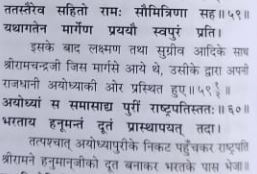Gautam Bhatia's 'argumentation' and 'slant': two observations
This piece is a response to points included in this piece attributed to Gautam Bhatia, dated 2019 Nov 18. This piece is neither a defense nor an endorsement of the subject of Dr. Bhatia's piece, the former chief justice of India (and any of his judgments, positions etc). It is limited to what I perceive as a flaw in Bhatia's argumentation and a call-out of what I see as one of his politico-legal slants. Observation 1 : NPWAPCG (no place where aggrieved people could go) argumentation Let us take Bhatia seriously, break his argument down, to see how it plays out: The court should not have taken over the Executive's task The Executive should have done the task and in that process, if the Executive violated rights the aggrieved could appeal to: the court ! In effect, Bhatia is taking the Supreme Court to task for its more direct involvement so that the same organisation—the Supreme Court—could have, later , been approached for grievances! If the Supreme Court...
